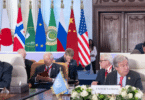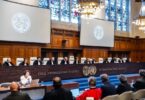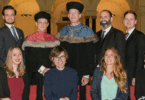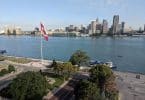| Key information | |||
|---|---|---|---|
| University | Queen's University Belfast | ||
| Country | Ireland | ||
| Learning mode | On-Campus | ||
| Pace | Full-time, Part-time | ||
| Duration | 12 months | ||
| Tuition fee | 19100 GBP | ||
| Application deadline(s) | June 30, 2024 | ||
| Official Website | Click here | ||
The MA program in Conflict Transformation and Social Justice offered by Queen’s University Belfast is an interdisciplinary program that draws on subjects such as law, anthropology, English, history, philosophy, politics, psychology, sociology, and the creative arts. This program allows students to build their personalized portfolio of knowledge and learning in the area of conflict transformation and social justice. The program is taught by academics and practitioners who have expertise in both national and global contexts and offer research-led teaching in areas of conflict such as South/Southeast Asia, the Middle East, Southern Europe, South America, and Northern Ireland.
The program offers an interdisciplinary approach to understanding both conflict transformation and social justice and works closely with The Senator George J. Mitchell Institute. It is the only global interdisciplinary MA program on Conflict Transformation and Social Justice offered by Queen’s University.
Graduates of the program can find employment in NGOs, civil sector organizations, policy research, law, advocacy, government, peace journalism, and conflict mediation settings. The program also offers world-class facilities, such as The Senator George J. Mitchell Institute for Global Peace, Security, and Justice, which fosters collaborations across a range of subject areas to address some of the key global challenges faced in achieving fairness, security, prosperity, social harmony, and progress. The program also allows students to meet internationally renowned experts in conflict transformation and social justice through modules, masterclasses, and events that emphasize both the scholarly and applied elements of conflict transformation and social justice. Students are taught by staff with research profiles of international standing, and wide ranges of interest in conflict transformation and social justice, and will have annual masterclasses with visiting world-leading researchers, diplomats, and practitioners.













